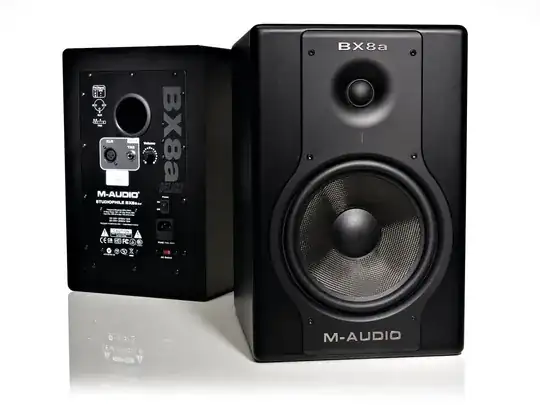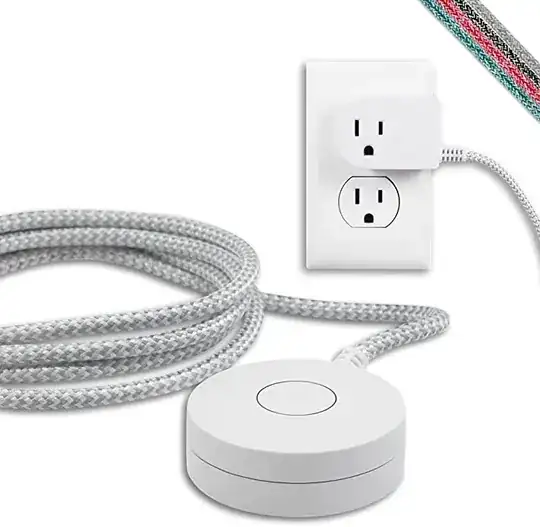I have a pair of powered studio monitor speakers for my PC. Each speaker has a dedicated on/off power switch on the back. It's inconvenient to reach around behind the speakers to turn them on and off each day, so I have both of them plugged into a power strip, which is then plugged into an on/off switch plug (see second image below) with a button that sits on my desk. This allows me to easily turn both speakers on/off at the same time with the simple click of a button.
Recently, one of my speakers has started crackling and popping occasionally, even with no sound playing. The speakers are over 15 years old and have gotten plenty of use, so it's certainly possible the internal components are just starting to fail, but I'm also wondering if the setup I'm using with the external on/off plug switch is possibly to blame for damaging the speakers.
Is it safe to simply cut the electricity to electronic devices like this, vs. using their dedicated on/off switches? Would it be safer if the on/off plug was plugged into a proper surge protector, instead of just a power strip? I'm planning to replace the speakers soon, but I want to make sure I don't damage the new ones with this same setup.

